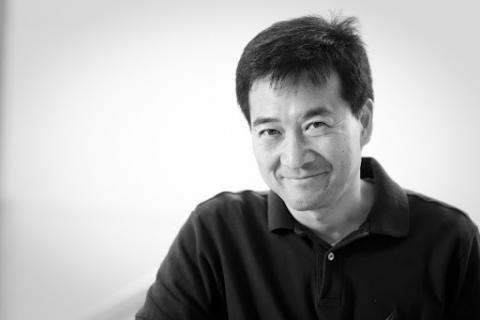Ji-Xin Cheng, Ph.D.
Moustakas Chair Professor in Photonics and Optoelectronics
Professor of Biomedical Engineering
Professor of Electrical & Computer Engineering
Professor of Chemistry
Professor of Physics
Boston University
Seminar Information

Chemical microscopy utilizing fingerprint vibrational spectroscopic signals is able to map the chemical contents temporally and spatially. Such capacity opens a new window to visualize the orchestra of molecules and/or biological structures inside living systems. Cheng and his research team have been dedicated to pushing the boundary of chemical microscopy in the entire spectrum of molecular spectroscopy, discovering molecular signatures in diseases, and translating label-free techniques to clinic for molecule-based precision diagnosis or treatment. The Cheng team further harnesses photons to modulate the behavior of cells, including photolysis of intrinsic chromophores to eradicate drug-resistant bacteria, and photoacoustic modulation of neurons at ultrahigh spatial precision.
Ji-Xin Cheng is currently the Moustakas Chair Professor of Photonics at Boston University. He attended University of Science and Technology of China (USTC) from 1989 to 1994. From 1994 to 1998, he carried out his PhD study on bond-selective chemistry at USTC. As a graduate student, he worked as a research assistant at Universite Paris-sud (France) on vibrational spectroscopy and the Hong Kong University of Science and Technology (HKUST) on quantum dynamics theory. After postdoctoral training on ultrafast spectroscopy at HKUST, he joined Sunney Xie’s group at Harvard University as a postdoc, where he spearheaded the development of CARS microscopy that allows high-speed vibrational imaging of cells and tissues. Cheng joined Purdue University in 2003 as Assistant Professor in Weldon School of Biomedical Engineering and Department of Chemistry, promoted to Associate Professor in 2009 and Full Professor in 2013. He joined Boston University as the Inaugural Theodore Moustakas Chair Professor in Photonics and Optoelectronics in summer 2017. Cheng and his team has been constantly at the most forefront of chemical imaging in innovation, discovery, and clinical translation. For his contributions to the field of vibrational spectroscopic imaging, Cheng received the 2020 Pittsburg Spectroscopy Award from the Spectroscopy Society of Pittsburg, the 2019 Ellis R. Lippincott Award from OSA, Society for Applied Spectroscopy, Coblentz Society, and the 2015 Craver Award from Coblentz Society. Cheng is authored in over 280 peer-reviewed articles with an h-index of 84 (Google Scholar). His research has been supported by over 35 million ($) funding from federal agencies including NIH, NSF, DoD, DoE and private foundations including the Keck Foundation. In 2014 He co-founded Vibronix Inc which has the mission of saving lives through medical device innovations. In 2019, he co-founded Pulsethera aiming to kill superbugs by photolysis of intrinsic chromophores. Cheng is a Fellow of Optical Society of America, a Fellow of American Institute of Medicine and Biological Engineering, and associate editor of Science Advances.
